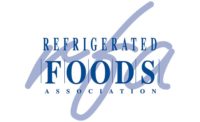It has been said that elections have consequences, and we expect President Joe Biden will pivot in many policy areas when he takes office on January 20, 2021. However, food safety remains a bipartisan issue and much of the American Frozen Food Institute’s (AFFI) food safety public policy priorities will continue in 2021.
Here are the top-two food safety regulations on AFFI’s agenda that should also be top of mind for your company.
Listeria Policy. A significant impasse confronting the food industry is a zero-tolerance regulatory approach for all foods, regardless of their risk profile. Currently, any positive finding of Listeria monocytogenes (Lm) in food is considered an adulterant and leads to a recall if the food is already in commerce.

AFFI recently announced the publication of a new manuscript: “Alternative Approaches to the Risk Management of Listeria monocytogenes in Low Risk Foods”, available online. The manuscript represents the proceedings and recommendations of AFFI’s Lm International Expert Panel, comprised of eminent researchers in Listeria science, epidemiology, risk modeling, food microbiology, and regulatory and public health policy. The panel set out with the objective to develop a scientific basis and rationale for Lm regulatory policies.
The expert panel’s recommendation to apply a risk-based approach to target L. monocytogenes in low-risk foods makes the case for a scientific and practical alternative to the current FDA approach. I believe these insights from the expert panel should guide sensible and sustained approaches to Listeria regulatory policy that enhance food safety management and improve public health. This will remain one of AFFI’s key priorities under the Biden Administration.
Traceability. Included as part of the U.S. Food and Drug Administration’s (FDA) New Era of Smart Food Safety Blueprint is proposed traceability recordkeeping requirements for certain foods and would implement Section 204(d) of FDA’s Food Safety Modernization Act (FSMA). Foods covered by this proposed rule are identified for inclusion in the Food Traceability List by a risk ranking model. While frozen foods are not explicitly included in the list of high-risk foods, there’s a good chance many foods—especially frozen produce—will have to comply and that the rule will influence practices throughout the supply chain, even for foods not identified by FDA as high risk.
To allow FDA the ability to rapidly track and trace food, the proposed rule will mandate that companies use a traceability lot code and require maintaining records throughout the supply chain linking the traceability lot code to additional information, such as where it’s grown, who shipped it, receiving and shipping information, and more. This goes beyond the one up, one back traceability models that are currently in place. These additional requirements will add costs to food manufacturers.
Grounded in science, AFFI will continue to advocate for practical food safety regulations on behalf of the frozen food industry. In turn, I encourage you to visit AFFI’s Food Safety Zone, share it with others in your company and begin implementing the variety of food safety resources and programs we offer.




